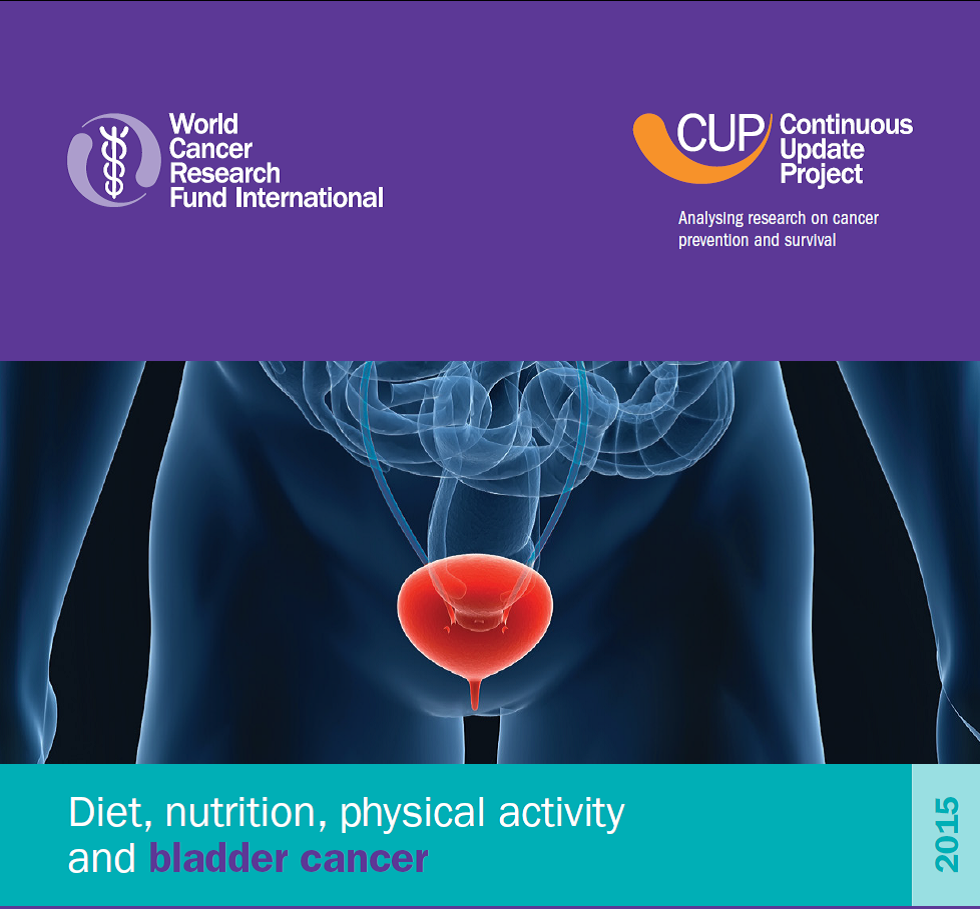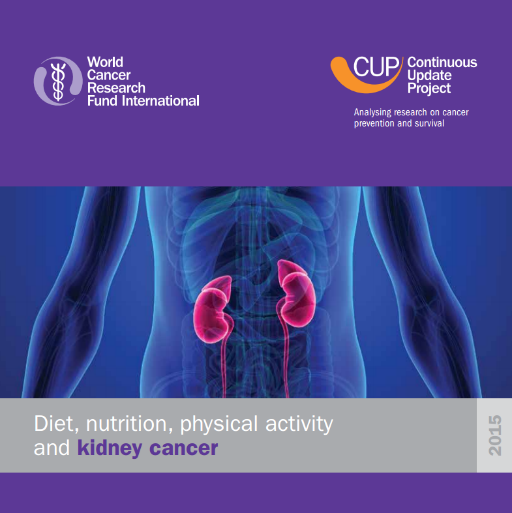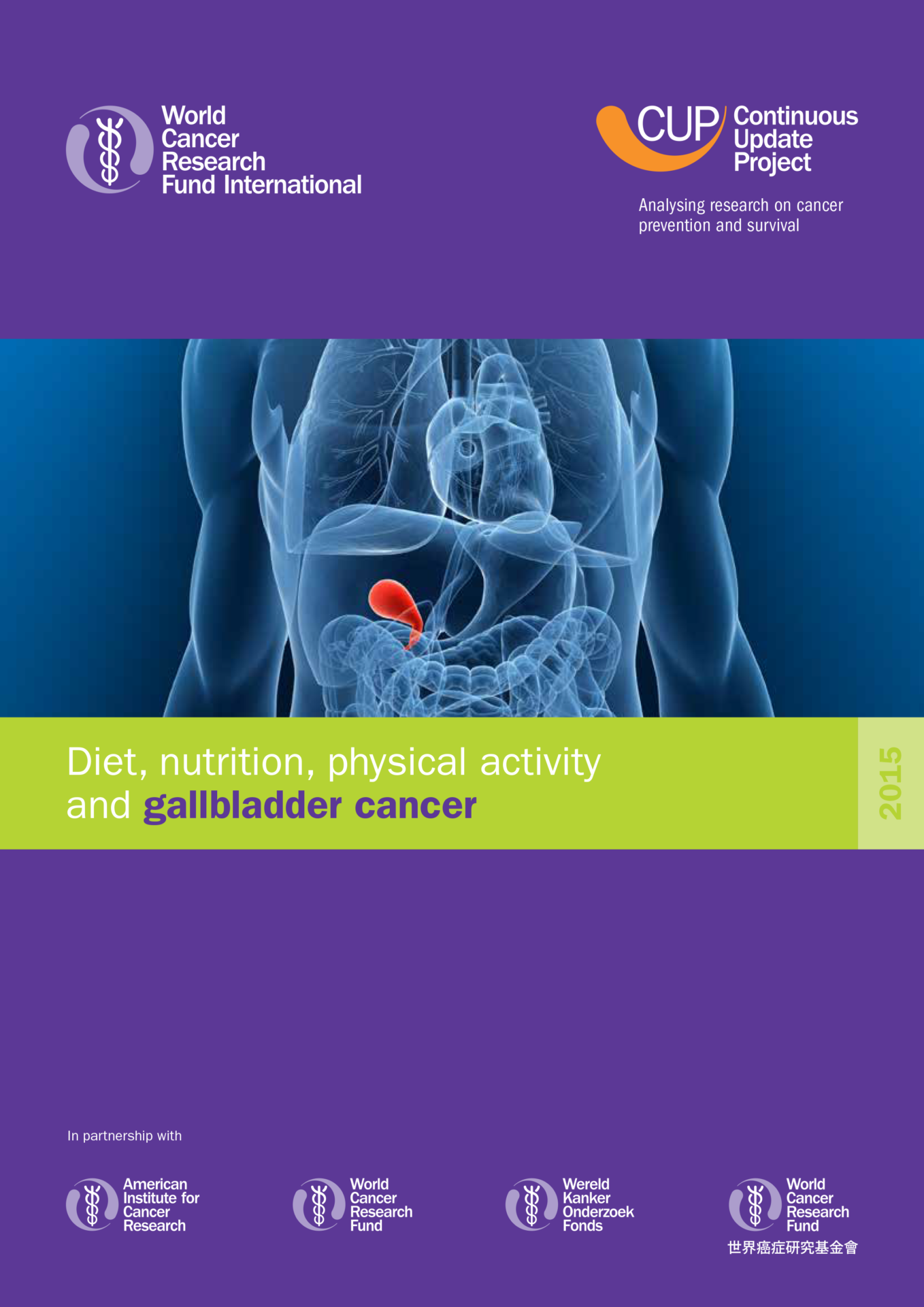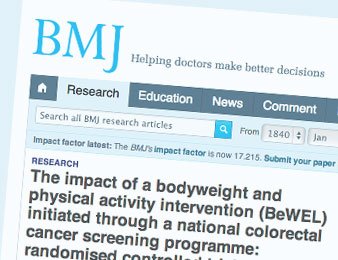Research Dissemination
One of our primary aims is ‘to support research and dissemination activities related to lifestyle and cancer risk reduction’. As a result, we regularly write about new research in our newsletter, as well as sharing new publications on social media. You can find some of our latest dissemination activity here:

10 Dec 15 |
Diet, nutrition, physical activity and bladder cancer
The latest output from the World Cancer Research Fund Continuous Update Project (CUP) is a report and systematic literature review on ‘Diet, nutrition, physical activity and bladder cancer’. Bladder cancer is the ninth commonest cancer worldwide and almost half a million people were diagnosed with it globally in 2012. Men are ...
Continue Reading
30 Sep 15 |
Diet, nutrition, physical activity and kidney cancer
The latest update report from The World Cancer Research Fund [1] analyses worldwide research on how certain lifestyle factors affect the risk of developing kidney cancer. Currently the 12th most common cancer worldwide, with 337,860 cases recorded in 2012, it is predicted that the incidence of kidney (renal) cancer will rise by 22% ...
Continue Reading
20 Jul 15 |
WCRF Continuous Update Report – Gallbladder Cancer
Gallbladder cancer is the twentieth most common cancer worldwide and the seventeenth most common cause of death from cancer. Survival is poor compared to some other cancers, as patients often present late due to a lack of symptoms until the disease is well established. It is more common in women than men and is […]
Continue Reading
20 Jul 15 |
Oesophageal cancer increased in patients with anorexia nervosa
Anorexia is a common and well-known symptom of many types of cancer, but what about the risk of cancer among patients with an eating disorder? Previous studies have focused on the hypothesis that patients with anorexia nervosa might be at lower risk of cancer overall due to energy restriction. [1, 2] However, a recent […]
Continue Reading
17 Apr 15 |
New evidence linking liver cancer to body weight
Maya Monteiro, Deputy Head of Health Information, World Cancer Research Fund UK In 2012, 4,703 cases of liver cancer were diagnosed in the UK. Liver cancer is more common in men than in women and risk increases with age. Sufferers are often asymptomatic until the disease is advanced, late diagnosis resulting in poor ...
Continue Reading
17 Mar 15 |
Modest Changes in Activity Levels may Improve Public Health
The body of evidence is strong that physical inactivity and obesity (BMI > 30kg/m2) are independent risk factors for many non-communicable diseases, including some cancers (especially breast and colorectal), and are associated with greater rates of all-cause mortality1.
Continue Reading
09 Mar 15 |
Are Cancer Prevention Guidelines Effective?
WCRF/AICR guidelines (1) aimed at reducing cancer risk include: • maintaining a healthy body weight (BMI < 25kg/m2) • achieving at least 150 minutes of moderate exercise per week • minimising sitting time • moderating alcohol consumption to two drinks per day for men or one drink per day for women • eating a […]
Continue Reading
12 Mar 14 |
Time to add cancer prevention interventions to cancer screening?
Results from the BeWEL study published online in the BMJ, show that people at higher risk of colorectal cancer participating in bowel screening are interested in lifestyle and can change diet, activity and body weight if given guidance and support. See http://www.bmj.com/content/348/bmj.g1823 Lifestyle interventions can ...
Continue Reading
07 Nov 13 |
Television Viewing – Think Twice
A recent study by Heinonen investigated the association between different sedentary behaviours and obesity in an adult Finnish population. As a secondary analysis of a large prospective cohort study, the authors were able to control for a wide range of possible confounders. Results showed that television viewing was most consistently ...
Continue Reading
07 Nov 13 |
Most Women Wrongly Estimate Their Risk for Breast Cancer
Breast cancer is often in the news, however, a large American survey of middle aged women found that only 10% of women accurately assessed their life-time risk of contracting the disease. Of the remainder half overestimated and half underestimated their risk. This finding has implications for women’s lives with some worrying ...
Continue Reading